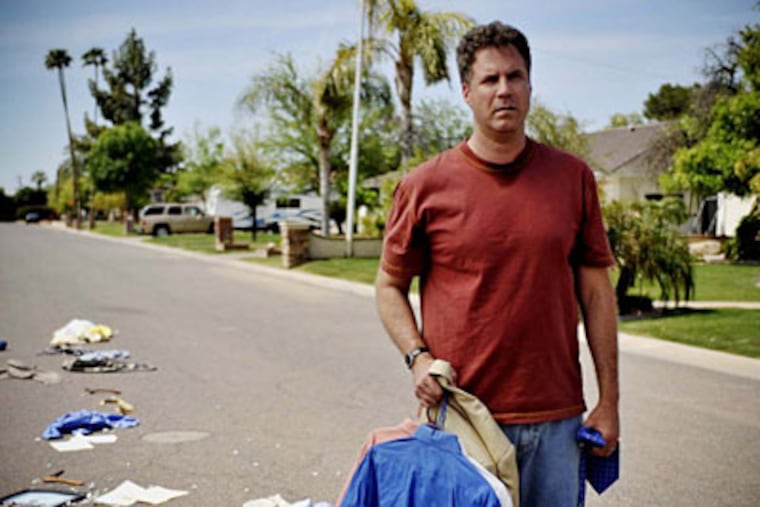Will Ferrell succeeds in ‘Everything Must Go’
Among the surprises in Will Ferrell's new "serious" movie is how funny it is.

Among the surprises in Will Ferrell's new "serious" movie is how funny it is.
The premise, taken from a Raymond Carver short story, seems almost like something out of "Married . . . With Children" - a guy comes home to find his wife has chucked his stuff into the front yard and locked him out.
Instead of retreating to a hotel, he decides to live there, sitting, sleeping, eating, boozing, listening to records in his house-without-walls.
But it's not sitcom stubbornness that drives him - it's despair. Little by little, Pabst by Pabst, we learn that Nick (Ferrell) is a relapsed alcoholic who has lost his sales job and his marriage because he's off the wagon. Again.
The force that keeps him in the front yard is inertia. His future has suddenly collapsed in front of him, and the only thing he can think to do is sit in his chair, and drink what's left of his money.
Right away, you see why writer-director Dan Rush wanted Ferrell for this job, and why Ferrell wanted to do it. The big, lumpy comedian's natural likability lightens the movie, while Nick's prickly exterior and suppressed emotions give Ferrell something new to play.
Ferrell's rapport with the audience is essential when Nick rebuffs, sometimes cruelly, the people who try to reach out to him - a pregnant bride-to-be (Rebecca Hall) across the street and a bored and curious teen (Christopher Jordan Wallace).
They push past Nick's booze-fueled belligerence, and tentative relationships begin to form. Through them we start to get a sense of Nick's humanity, and begin to calculate the odds that he can pull himself out of his nosedive.
Rush's script does a nice job of keeping Nick poised between hope and despair. We see him reach out, forming a yard-sale joint venture with the persistent teen, teaching him the fundamentals of sales. These scenes are improbably touching, and owe much to young Wallace (son of the late rapper Notorious B.I.G.), who is very good in this role.
At the same time, Nick can't help control his drinking, or his impulse to disparage Hall's vulnerable woman. There's an effectively grim moment when you see him trying to infect her with his own failure and cynicism.
That scene complements another; Nick consults on old high-school friend (Laura Dern), and we glimpse the origins of a life gone wrong.
There are enough of these tasty scenes to make you wish "Everything" had a better ending. The challenge of adapting Carver's spare story has led Rush to conjure a bit of melodrama the movie doesn't need, but in the last few seconds the movie rights itself with an appropriate note of ambiguity and poetry.